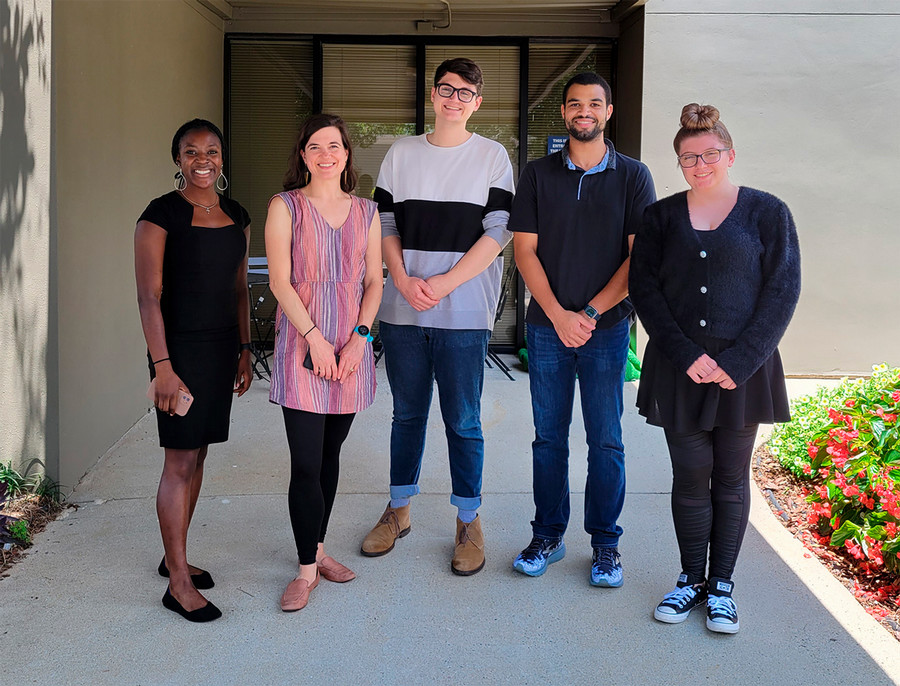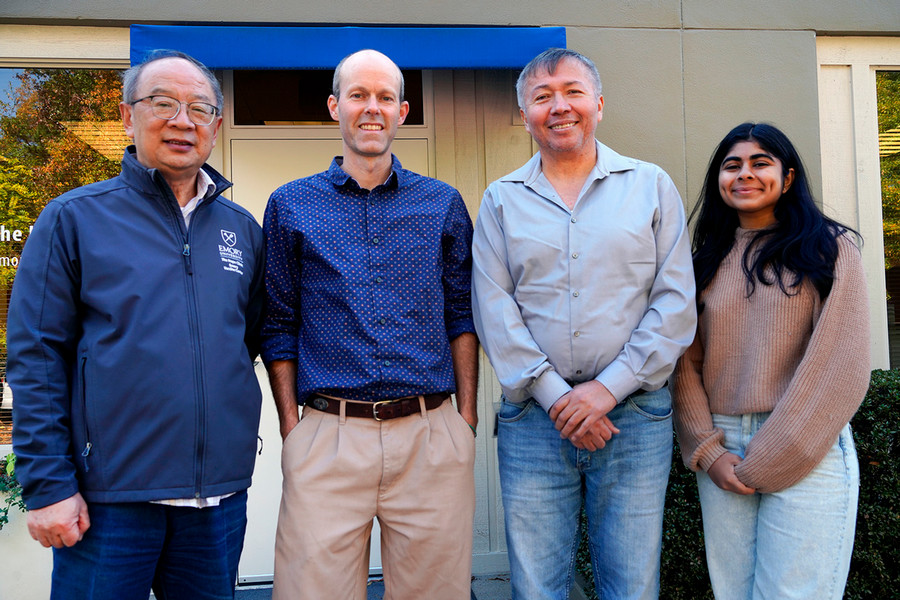Laboratories

Scherer Laboratory

The overarching research goal of the Scherer Laboratory is to fully understand the immunity underlying long-lasting and protective antibody responses in order to more reliably design vaccines that provide life-long immunity.
For example, the Scherer Lab is working to understand how the human papillomavirus (HPV) vaccines generate such long-lived antibody responses. The HPV vaccines represent ideal subunit vaccines for studying how lasting antibody responses are generated, because they induce antibody responses that remain higher and last longer than the antibody responses generated by many other approved vaccines, including COVID-19 vaccines. We are currently investigating whether the long-lasting antibody responses generated by HPV vaccines depend on properties of the vaccines, like antigen valency, or other immune responses the vaccines activate, like helper T cells. The goal is to then apply the knowledge we gain through these studies to design vaccines that will more reliably provide long-lived protection against other pathogens, like malaria. We are also working to understand if fewer HPV vaccine doses give equivalent immunity.
Did you know antibodies are sweet? Almost all antibodies in the body are made with sugars attached to them. The types of sugars on the antibodies can impact what immune responses the antibodies activate. For example, some antibody sugars are thought to drive inflammatory immune responses, while others are thought to block inflammatory responses. We now know that viral infections can generate antibodies with unusual sugars. The Scherer Lab is working to understand how viral infections generate antibodies with unusual sugars, and how different types of antibody sugars generate protective or pathologic immune responses. For example, we are studying how antibodies elicited during severe COVID-19 have unusual sugars that drive hyper inflammatory responses that may be contributing to COVID-19 immunopathology. Understanding this process and how to block it could help identify new therapies for severe viral infections.
For more information about the Scherer Lab, contact Dr. Erin Scherer.
Collins ArboLab

Our lab group aims to decrease the global burden of arbovirus disease by pursuing translational research incorporating the disciplines of epidemiology, immunology, and virology. Through domestic and international collaborations, we focus on adaptive immunity to viruses transmitted by the anthropophilic vector Aedes aegypti and organize around three domains of work:
- Define the burden of endemic and epidemic Aedes-borne virus (ABV) infection in tropical or resource-limited areas. We apply serologic tools to discover the patterns and extent of ABV transmission in regions that may lack robust surveillance infrastructure. Defining ABV epidemiology is crucial to inform public health priorities and resource allocation and to plan and assess interventions to decrease ABV transmission in at risk population.
- Assess epidemiologic and immunologic endpoints in ABV vector control trials and clinical trials to develop arbovirus vaccines. We leverage existing and novel assays, organized in pragmatic testing algorithms to answer key research questions. Priorities include the evaluation of innovative approaches to vector control in reducing ABV transmission and assessing the quality and specificity of antibody responses to Zika and chikungunya vaccine candidates.
- Determine the relationship between genetic and antigenic variation for dengue virus (DENV) to optimize vaccine strategies. A few DENV vaccine candidates have been licensed and/or reported Phase 3 efficacy results. A major challenge still facing the DENV vaccine field is that contemporary circulating strains of DENV comprise immense and evolving diversity. We endeavor to define critical drivers of differential immunity to DENV variants and contribute to systems that will revolutionize the design and deployment of DENV vaccine programs.
For more information about the Collins Arbo Lab, contact Dr. Matthew Collins.